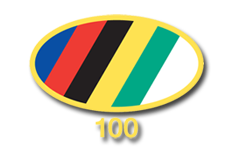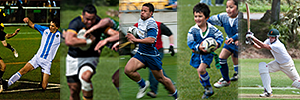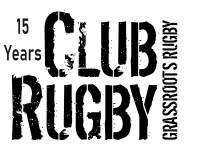Wellington against international teams: versus England 1963

Match Details
Result:?England 14 – Wellington 9
When:?18 May, 1963, at Athletic Park
Weather: Fine, but with a strong, cold southerly
Crowd:?27,000
The Tour
Four years after Wellington played and lost to a full British Isles team, England’s 1963 tour to New Zealand represented the first time one of the individual four home unions – England, Ireland, Scotland and Wales – toured here.
The All Blacks had played England on English soil in 1904, 1924, 1935 and 1953.
It was noted in the preview of the Rugby Weekly programme for this match that it was appropriate that England’s first match of the tour be played at Athletic Park. “This is the headquarters of New Zealand Rugby; this is the ground which, more than any other in the country, breathes the atmosphere of rugby.”
The 1963 English tourists were praised afterwards for their enterprising play, and their party included several players who wore the British Lions jersey on their visits to New Zealand in 1959 and 1966.
This was just a short five-match tour. Their results were: beat Wellington 14-9; lost to Otago 9-14; lost to the All Blacks 11-21 (in Auckland); lost to Hawke’s Bay 5-20; lost to the All Blacks 6-9 (in Christchurch). Thus this win over Wellington was their only success.
England jetted into Auckland four days before their tour opener against Wellington, spending three days in the capital training, playing golf and attending functions.
Wellington had a strong team to test the visitors. Backs Rod Heeps, Ralph Caulton, Russell Watt, Mick Williment and Ian Uttley and forwards Dave Gillespie, Nev MacEwan and Ken Gray were or were to become All Blacks.

The Match
Since the British Lions tour in 1959 there had been visits by France (1961) and Australia (1962), but neither had played against Wellington. Historically, Wellington had a good record against international teams but they hadn’t taken an international scalp since 1931. This was a prime opportunity for them to do so.
Conditions weren’t great. A cold southerly rolled in on Friday night and gripped Wellington on match-day.
England had first use of the stiff wind and they opened the scoring with a monster 50 metre penalty. Wellington hit back with a try set up by centre Russell Watt and scored by wing Ralph Caulton and it was 3-3 midway through the first half.
England , however, tool control for long periods, scoring a converted try and kicking a penalty and dropped goal. Wellington closed the gap with a 40-metre penalty to fullback Mick Williment just prior to halftime, before Williment averted a blow-out with a try-saving tackle in the corner just before halftime. England led 14-6 at the turnaround.
Now with the wind, Williment kicked an early second half penalty for Wellington, but there was to be no more scoring for the remainder of the match. England played smart into-the-wind rugby – although Wellington’s other wing, Rod Heeps, was awarded a try in the corner by the referee but the touch judge’s shot up as he shaved the corner flag.
The next edition of the Rugby Weekly summed up the match:
“England won the match by virtue of a finer appreciation of what to do with the conditions – astounding really – and because they had the freedom and space to exploit these conditions.
“Yes, it is astounding that at Athletic Park in a southerly, a visiting team should be able to show us how to effectively wrap up a game in the first spell. 14-6 at halftime became 14-9 at fulltime.”
Wellington’s forwards played well, but the backs were often directionless and squandered possession.
“The two in the backs who came through the game perhaps with most credit were Williment and and Caulton. Williment was subjected to a barrage of testing kicks, he was sound on the tackle and in his ability to kick goals. He came through with great credit.”
This loss set the tone for a modest season for Wellington, remembered for winning the Ranfurly Shield off Auckland and then losing it seven days later to Taranaki.
The Teams
Wellington:?1. K.F. Gray, 2. C. Currie, 3. D.P. Bendle, 4. M.R. Dunne, 5. N. MacEwan, 6. W.D. Gillesspie, 7. W.R. Strang, 8. P.A. Russo, 9. B.A. Cull, 10. C.J. Stewart, 11. R.W. Caulton, 12. I.N Uttley, 13. J.R. Watt, 14. T.R. Heeps, 15. M. Williment
England: 1. P.E. Judd, 2. H.Godwin, 3. C.R. Jacobs, 4. A.M Davis, 5. J.E. Owen, 6. V.R. Marriott, 7. D.P. Rogers, 8. D.G. Perry, 9. J.S Clarke, 10. J.P. Horrocks-Taylor, 11. M.S Phillips, 12. M.P. Weston, 13. J.C. Gibson, 14. M. Ranson, 15. R.W. Hosen
The Players
Fullback Mick Williment (University) was a local rugby star for a decade, playing 108 first-class matches for Wellington A. In 1967 the?Wellington?rugby community was shocked to the core when one its most famous sons was left out of the All Blacks for their tour to?Britain?and?France?in favour of Cantabrian Fergie McCormack and?Williment’s?Wellington?teammate Gerald Kember who was predominantly a second five-eighth. Williment went on to be a leading player in?Wellington’s twin wins over the Springboks two and three years after this match against the British Lions. In 1966 he scored 213 points in the season and broke Ron Jarden’s one year scoring record. Plucked out of obscurity as an 18-year old by selector Clarrie Gibbons,?Williment?was?Wellington’s backline hero and ace goal kicker of the 1960s and all up scored 1255 first-class points in 173 matches. He sadly passed away in 1994, aged 54.?
Wing Rod Heeps (Athletic) played 10 matches for the All Blacks, including five tests, all against Australia in 1962. Heeps had the distinction of scoring a record eight tries in the All Blacks' 103-0 win over Northern New South Wales in Quirindi during that tour. He scored 15 tries in black. Heeps’ prime asset was speed. He won three national 100 years titles between 1961-63, with a best time of 9.8 seconds. Between 1958-1965, Heeps played 57 matches for Wellington. His best season was 1964 when he scored 12 tries in 17 matches. He was chosen for the first Test against England that followed this one, but was forced to withdraw through injury and his All Black career was over.
Ian Uttley (University), who played second five-eighth in this tour match, was chosen to play his only two Tests for the All Blacks at centre in this series against England. Only diminutive in size, Uttley had top skills and a keen eye for a gap. Orginially from the South Island, Uttley spent his final year of school at Wellington College and played for Wellington between 1961-65 and again in 1968. He also played for Auckland in 1966 and Bay of Plenty in 1967.
References?
? The??Dominion?newspaper, May 1963
? Arthur Swan and Gordon Jackson. Wellington’s Rugby History Part 11 1950-1979. WRFU, 1979.
? The Visitors - The History of International Rugby Teams in New Zealand by Rod Chester, Neville McMillan. MOA Publications, Auckland, 1990
? Rugby Weekly?Souvenir Edition. British Isles v Wellington, May 18, 1963
? Rugby Weekly, May 25, 1963
? Rugby Weekly 5 September, 1973
? The Encyclopedia of New Zealand Rugby?By Ron Palenski, Rod Chester, Neville McMillan. Hodder Moa Beckett, Auckland 1998
? All Blacks A-Z on www.allblacks.com
Steven White, 19 Mar 2019
Adam Julian, 19 Mar 2019
Steven White, 12 Mar 2019
Adam Julian, 04 Mar 2019
Steven White, 12 Feb 2019


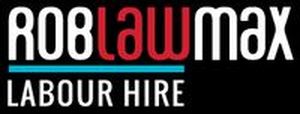




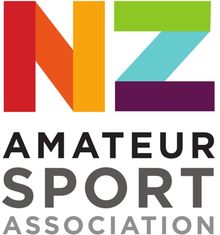
.jpg)
